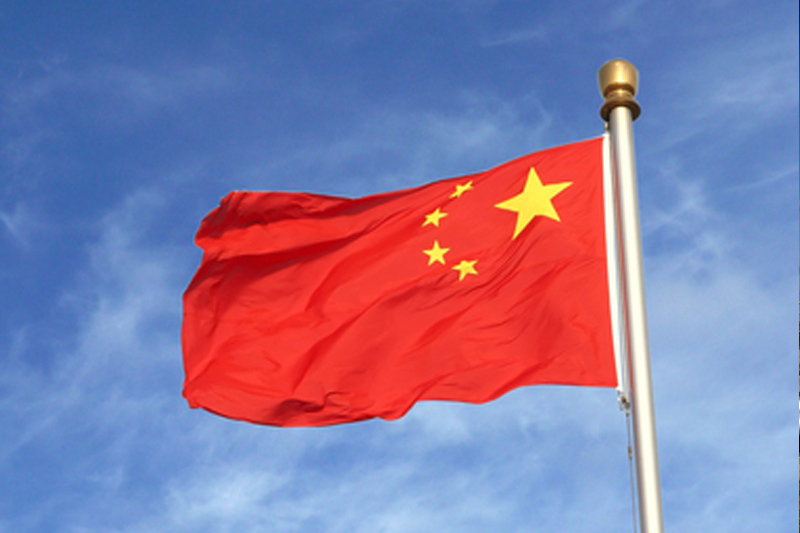By Kathleen Caulderwood - This year’s West African Ebola outbreak that has already killed more than 1,500 people could prove an opportunity for China to adjust its controversial reputation on the continent. As health workers call on the international community for aid, China has joined the ranks of global NGOs and foreign governments in providing aid to the region, where its motivations stretch farther than the current tragedy.
Over the past decade, China has sent millions in aid and invested billions in Liberia, Sierra Leone and Guinea, where the outbreak has hit hardest.
“There are ambivalent views on the presence of Chinese companies in Africa,” reads an August report from the Ethics Institute of South Africa exploring local attitudes towards Chinese investors on the continent. “Some portray China as a benevolent investor and friend of Africa. Others accuse China of being a ‘new colonial power,’ extracting resources for their own benefit with little return for Africa,” the report says.
China sent a series of shipments to affected areas over the course of the outbreak. One worth roughly $160,000 in early May, and another $4.9 million worth of supplies on August 7, according to state-run news outlets, which also report that at least 20,000 Chinese nationals are present in Liberia, Sierra Leone and Guinea.
Later, eight Chinese workers who had treated Ebola patients were quarantined in Sierra Leone.
On August 10 China announced plans to send a team of nine specialists from its Center for Disease Control to train local medical staff and distribute supplies in Guinea, Sierra Leone and Liberia. China Central Television (CCTV) reported that it was the first time the country has offered to help foreign nationals during a public health emergency.
Regardless of motivation, the efforts aren’t unwanted.
“Six months into the worst Ebola epidemic in history, the world is losing the battle to contain it,” said Doctors Without Borders (MSF) President Joanne Liu on Tuesday. “Leaders are failing to come to grips with this transnational threat.”
MSF is just one of many international organizations that are calling on the international community to step in with resources.
“This is going to be a test of the national capacities of these countries and their health systems are very much strained and so is their infrastructure,” U.N. Deputy Secretary-General Jan Eliasson said at a General Assembly meeting Tuesday. “But it’s also going to be a test of multilateralism; a test of international solidarity for people in dire need right now.”
But Chinese attention in the region isn’t new. China surpassed the United States as Africa’s largest trading partner in 2009. By 2011, more than 80 percent of its imports were crude oil and other natural resources. “China will, as always, continue to increase its assistance to Africa in both quantity and quality to the extent of its ability, ensuring that more than half of its foreign aid will go to Africa,” Chinese Premier Li Keqiang said to business leaders and politicians at the World Economic Forum on Africa in Abuja, Nigeria, on May 8.
As the Ebola outbreak continues with no signs of stopping, the affected countries have already begun to experience significant economic damage, which may be worrying for Chinese companies with high stakes there.
In Liberia, where at least 694 people have died from Ebola according to the Centres for Disease Control, China has sent more than $295 million in aid between 2001 and 2011. In 2012 the Chongqing International Construction Company won a $166 million contract to build a 111-mile road there.
“At this difficult moment, the Chinese Government and People felt the pain and suffering of the Liberian Government and people, and are willing to urgently deliver a consignment of epidemic preventive materials,” Chinese Ambassador Yue said in Monrovia on Aug. 12, according to local reports.
Guinea, with at least 430 Ebola victims already recorded, was among the first countries to sign an official bilateral trade agreement with China in the 1950s. The China International Water and Electric Corporation has been working on the $446 million Kaleta Hydroelectric Project in Guinea. Technology firm Huawei Technology Co Ltd. (SHE:002502) also has a branch in Guinea, but will be continuing normal operations, according to a Quartz report from Aug. 22.
More than 422 people have died in Sierra Leone, a country where Beijing has been working since 1971. China overtook South Africa as its largest trade partner in 2011, and trade volume expanded to $2 billion this year thanks to massive mining investments, according to Bloomberg. For example, the Shandong Iron & Steel Group Co. SHA:600022 has a 20 percent stake in African Minerals Ltd., the country’s largest iron ore producer.
Despite a busy first two quarters, “the last few weeks have thrown up a perfect storm of low iron ore prices and heightened concern over the serious Ebola virus disease outbreak,” African Minerals said in an Aug. 15 company statement.
While all this represents a sizeable investment, Nigeria, Africa's largest economy and recipient of more than $47 billion worth of Chinese aid between 2001 and 2011 presents an even greater concern.
“Ebola has cast a shadow over new possible investment from China,” Xue Xiaoming, vice-chairman of the Chinese Chamber of Industry and Commerce in Nigeria said last month, adding that despite his faith in the Nigerian government to control an outbreak, investors were still getting nervous.
Trade volumes between Nigeria and China hit close to $14 billion last year, nearly double the rate just four years earlier, according to the Chinese ambassador to Nigeria Deng Boqing, who spoke on the subject in January.
